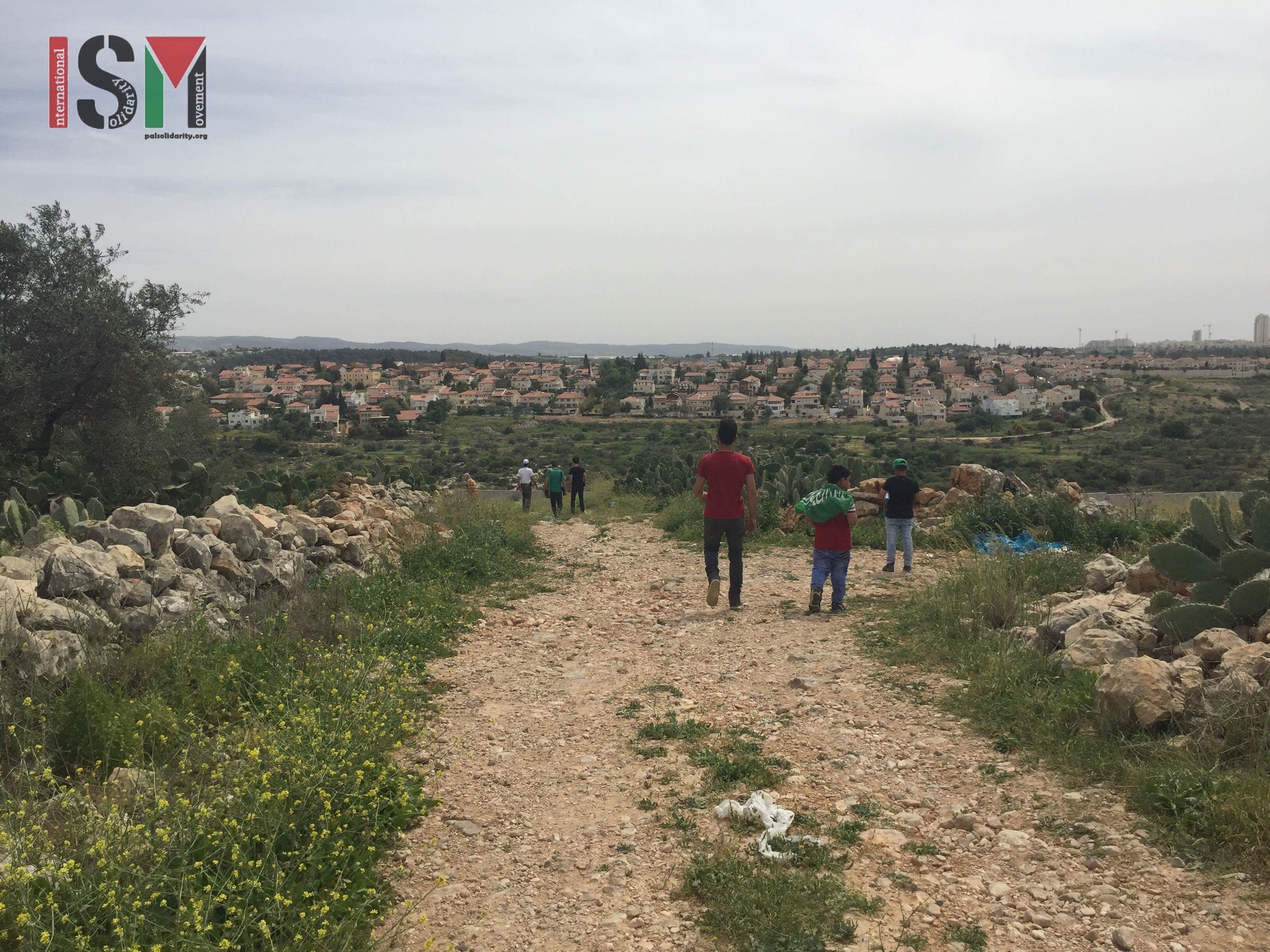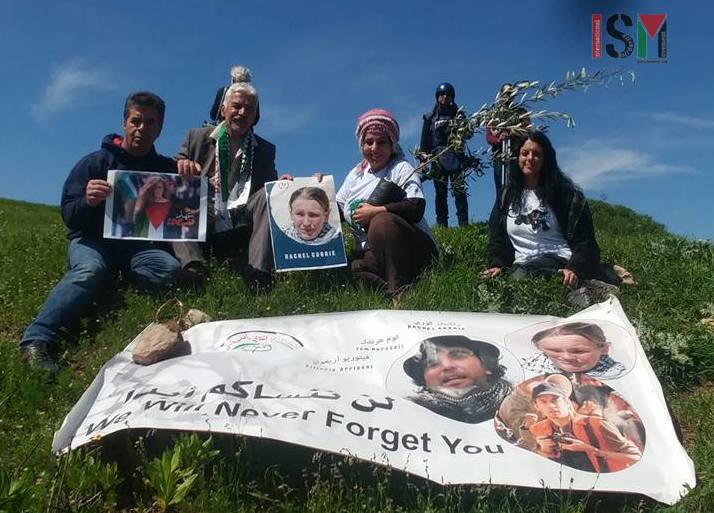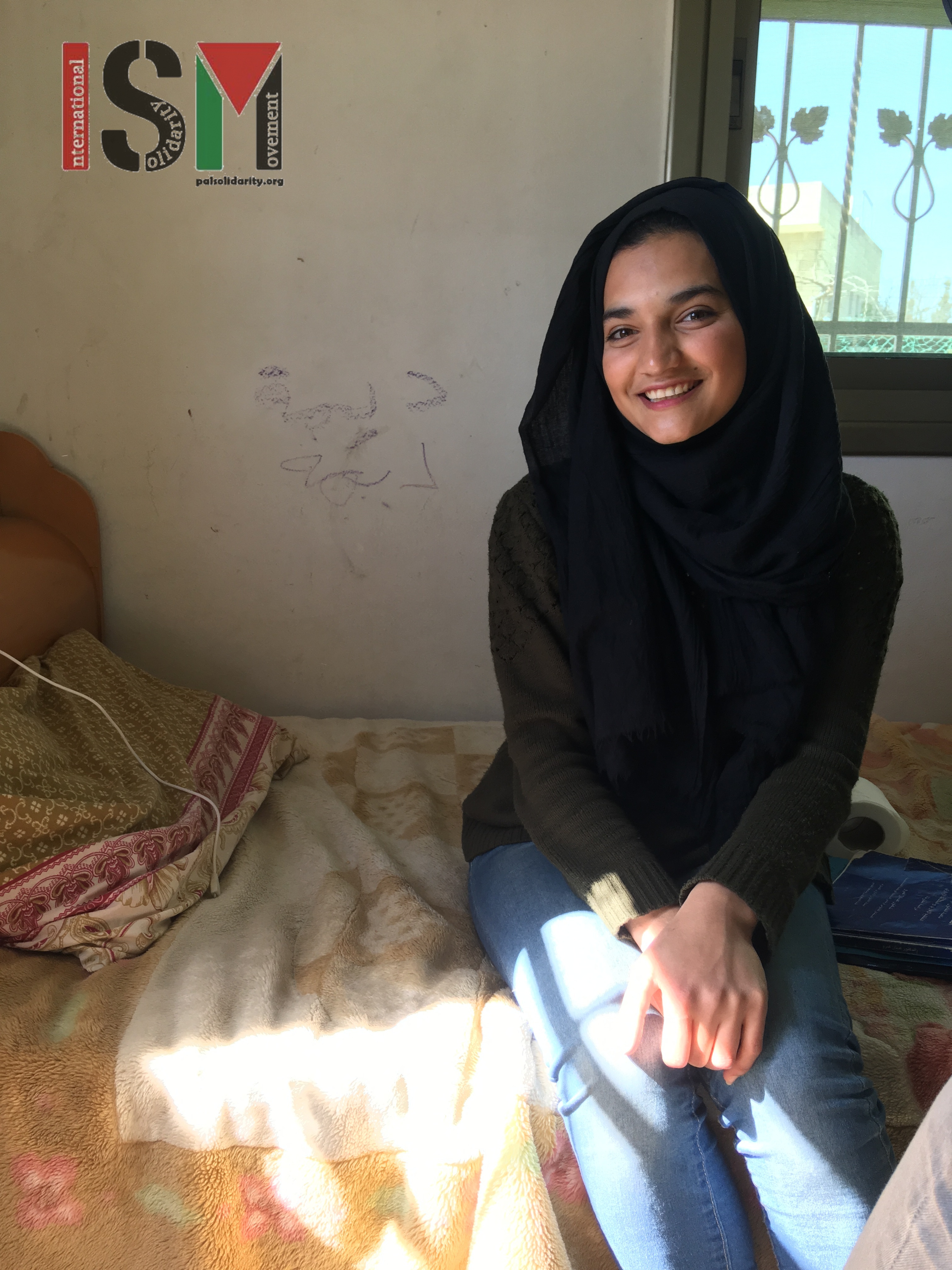-
Palestinian protestors march to the apartheid wall to confront Israeli occupation in Nil’in
23/03/2018 International Solidarity Movement, Occupied Palestine This Friday afternoon Palestinians gathered in the olive groves in the West Bank town of Nil’in before marching to the apartheid wall to confront the Israeli occupation. At dawn on the 23rd of May 2004 a Palestinian farmer walked towards his fields in Nil’in but was met with the […]
-
Palestinian and International activists plant olive saplings on village land ordered for confiscation by Israel in Burin
17/03/2018| International Solidarity Movement Palestinians and International activists successfully planted dozens of olive saplings in the north of West Bank in the village of Burin near Nablus. Palestinians and Internationals together laid pictures of prominent activists in front of the planted saplings, some of these activists were killed by the Israeli army others are Palestinian […]
-
A recollection of Dima al-Wawi’s imprisonment and a remembrance of Hamza Zamara
18th March 2018 | International Solidarity Movement, al Khalil team | Occupied Palestine Two years ago Dima al-Wawi woke up for school feeling sick. Her throat hurt and her lymph nodes were swollen. Her parents were already out of the house, on their land that is split in two by the illegal settlement Karmi Zur […]
Action Alert An Nabi Saleh Apartheid Wall Arrests BDS Bethlehem Bil'in Cast Lead Demonstration Denial of Entry Ethnic Cleansing Farmers Gaza Global Actions Hebron House Demolition International law Israeli Army Jerusalem Live Ammunition Nablus Ni'lin Prisoner Ramallah Rubber-coated steel bullets Settlement Settlers Settler violence Tear-Gas Canister Video



